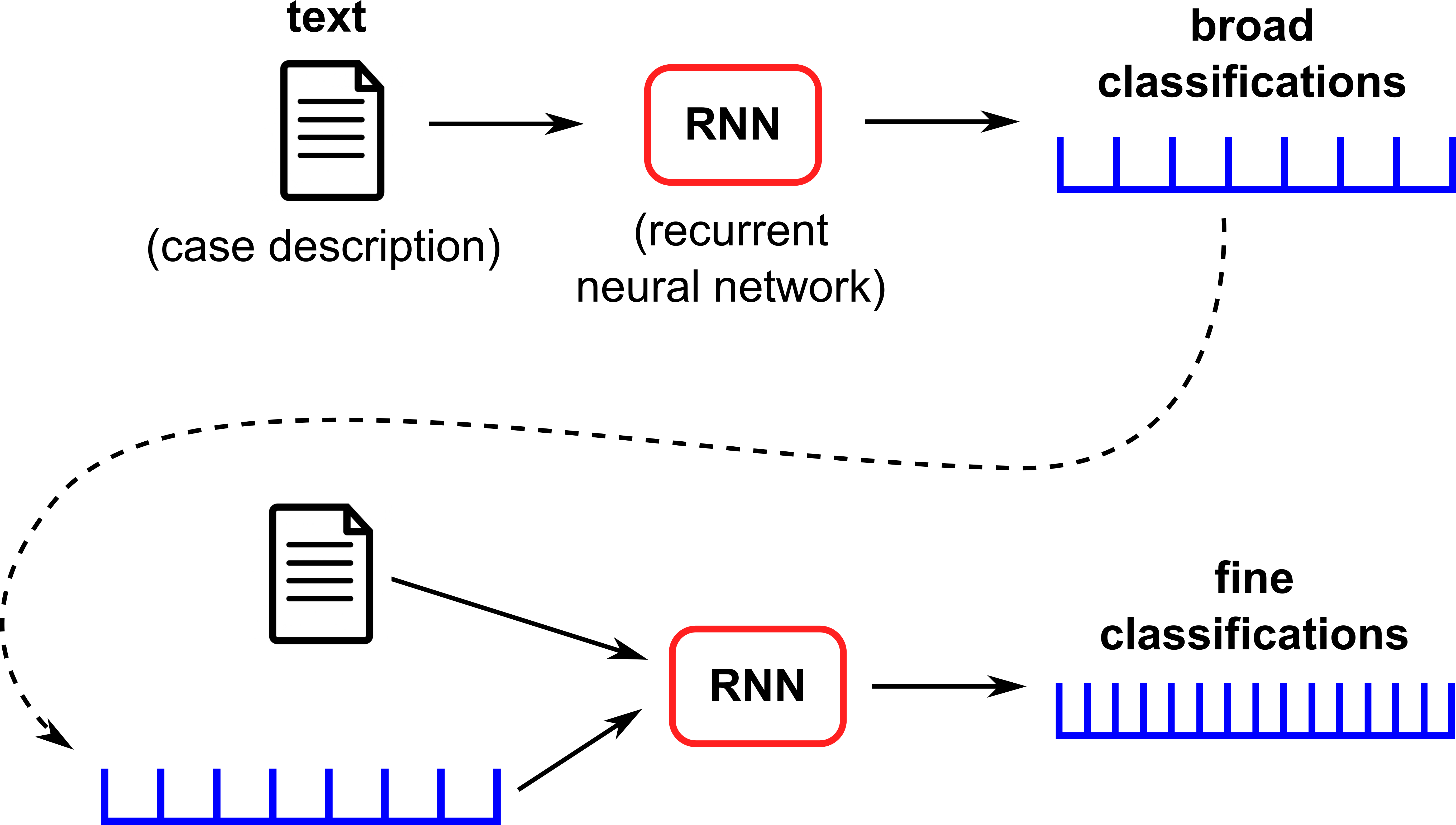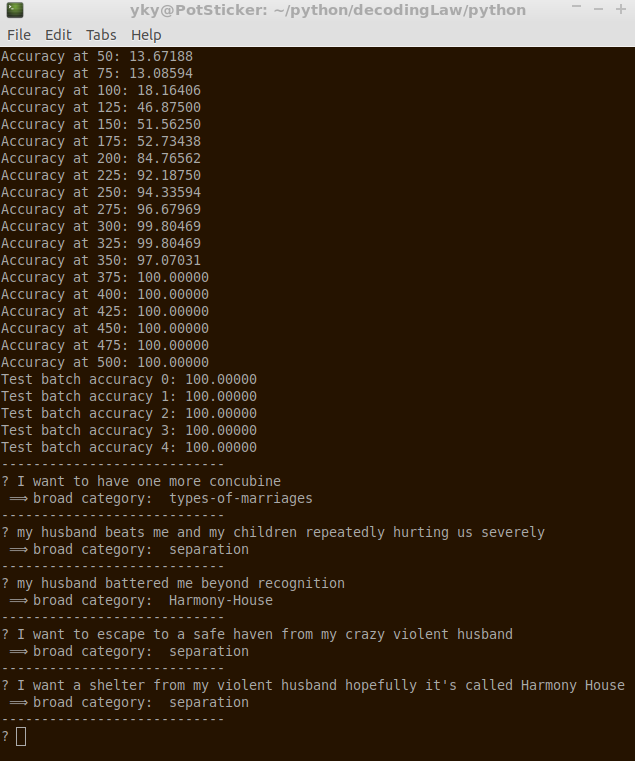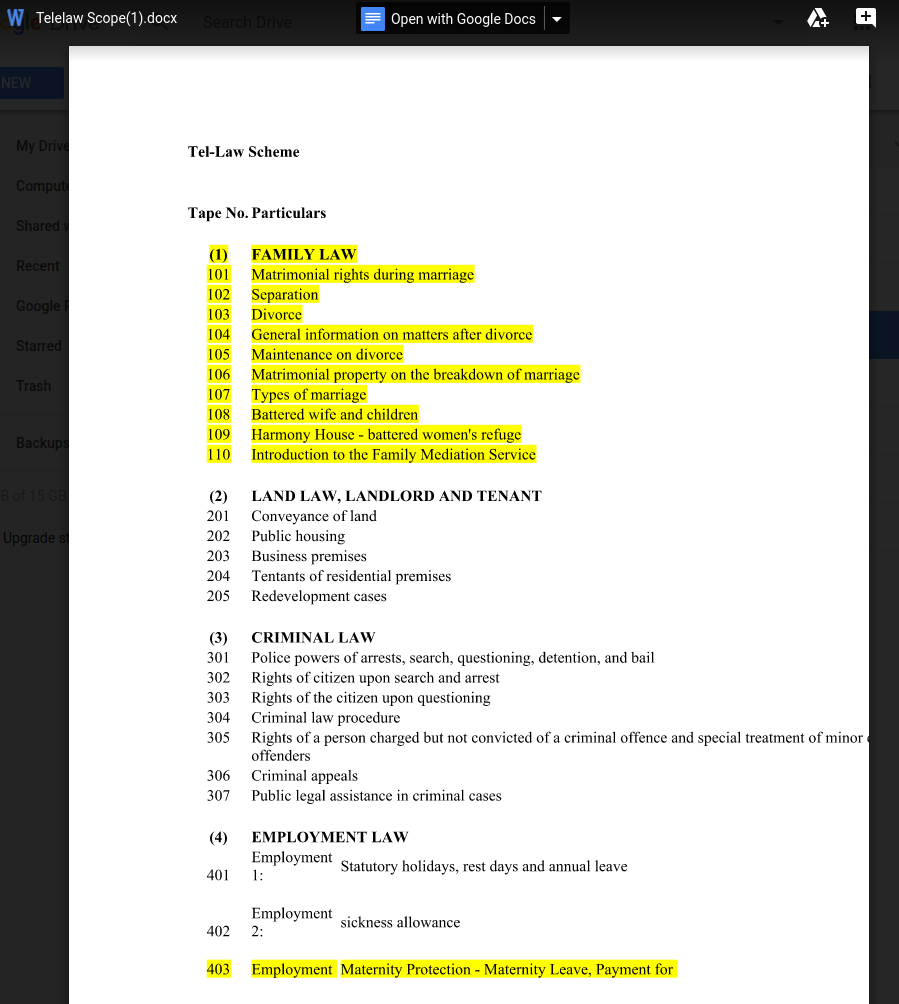History -- we joined the following competitions:
- Global Legal Hackathon 2018, Decoding Law -- make law accessible for all
- Access to Justice Hackathon 2018, LegGo -- 21st-century legal information system
Typically you'd want to install Tensorflow under Anaconda.
For example, download the Anachonda install script and run it:
bash Anaconda3-5.1.0-Linux-x86_64.sh
Then create a Tensorflow environment called "tf":
conda create -n tf pip python=3.6
Then activate the environment:
source activate tf
You will see the command prompt changed.
Then install Tensorflow with:
pip install tensorflow==1.5
(As of 2018 March, 1.6 seems to have a bug)
Then install NLTK toolkit with:
conda install -c anaconda nltk
Then install NLTK corpus with:
python
import nltk
nltk.download()
and choose "corpus" to download.
Lastly, download the word vectors file from either:
fastText: https://fasttext.cc/docs/en/english-vectors.html
(file name = wiki-news-300d-1M.vec.zip)
or GloVe from Stanford: https://nlp.stanford.edu/projects/glove/
(file name = glove.840B.300d.zip)
Then unzip the file and put it in the directory \data. (Or you can modify the path in my code, it's possible to run with the zipped version directly.)
Then you can run our code:
python main-RNN.py
Try out some queries after the ? prompt.
Currently the code does stage 1, "broad classifications".
In the future we will try to do stage 2.
The demo classifies queries into 3 categories:
- nuisance
- dangerous driving
- work injuries
This is an example run:
The new demo isn't very successful (more wrong than correct answers):
Now increased to 10 categories:
The above file is part of the decision tree used by a telephone inquiry system (TelLaw, provided by HK government). Each sub-topic is associated with a pre-recorded message of ~500 words' length. Since the message text is not long, and the sub-categories are all very similar (under FAMILY LAW), our AI does not perform very well, but there may be ways to improve it.
The AI / deep learning aspects are discussed further in these notes:
We are currently trying to implement those ideas.



